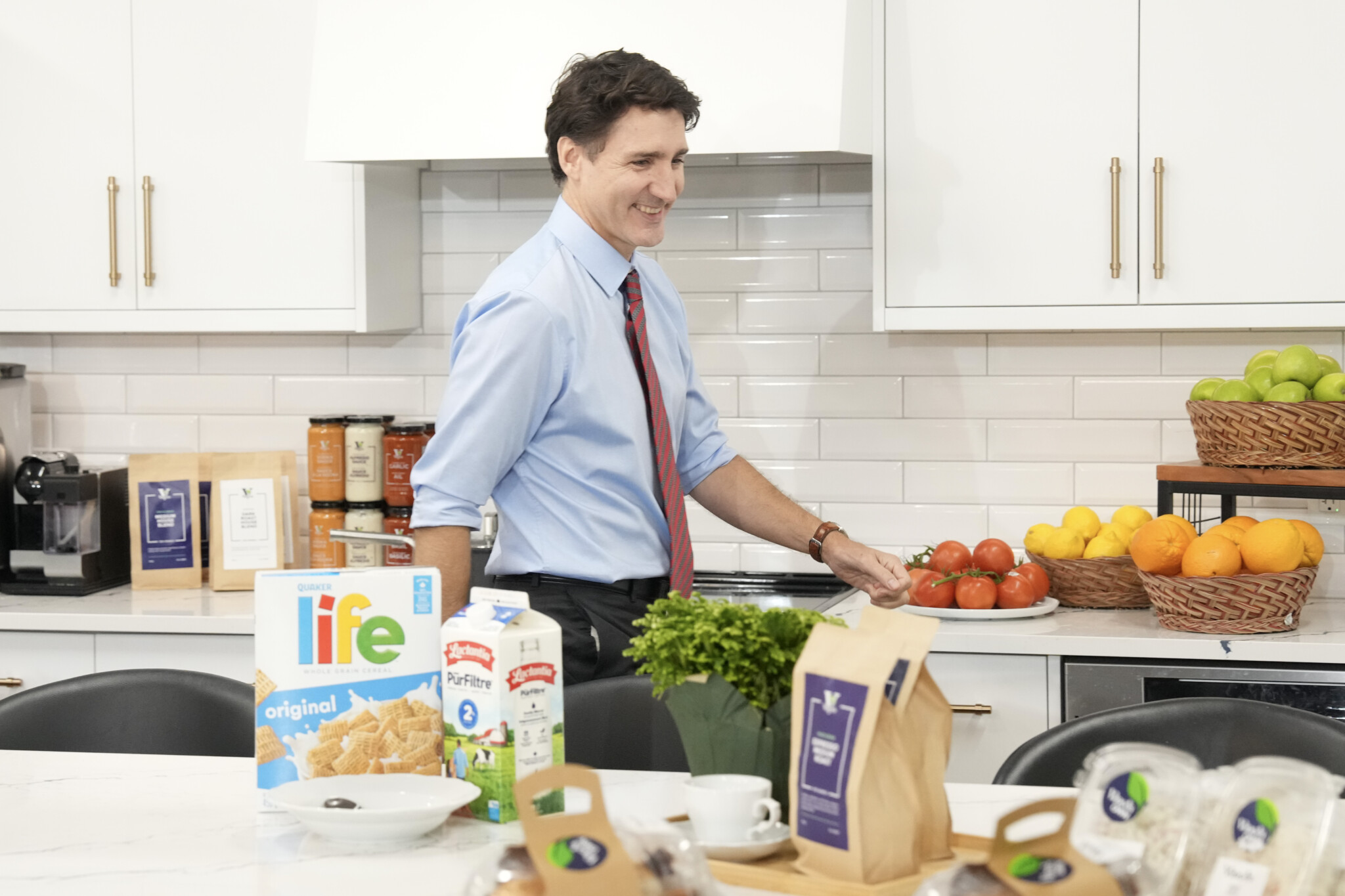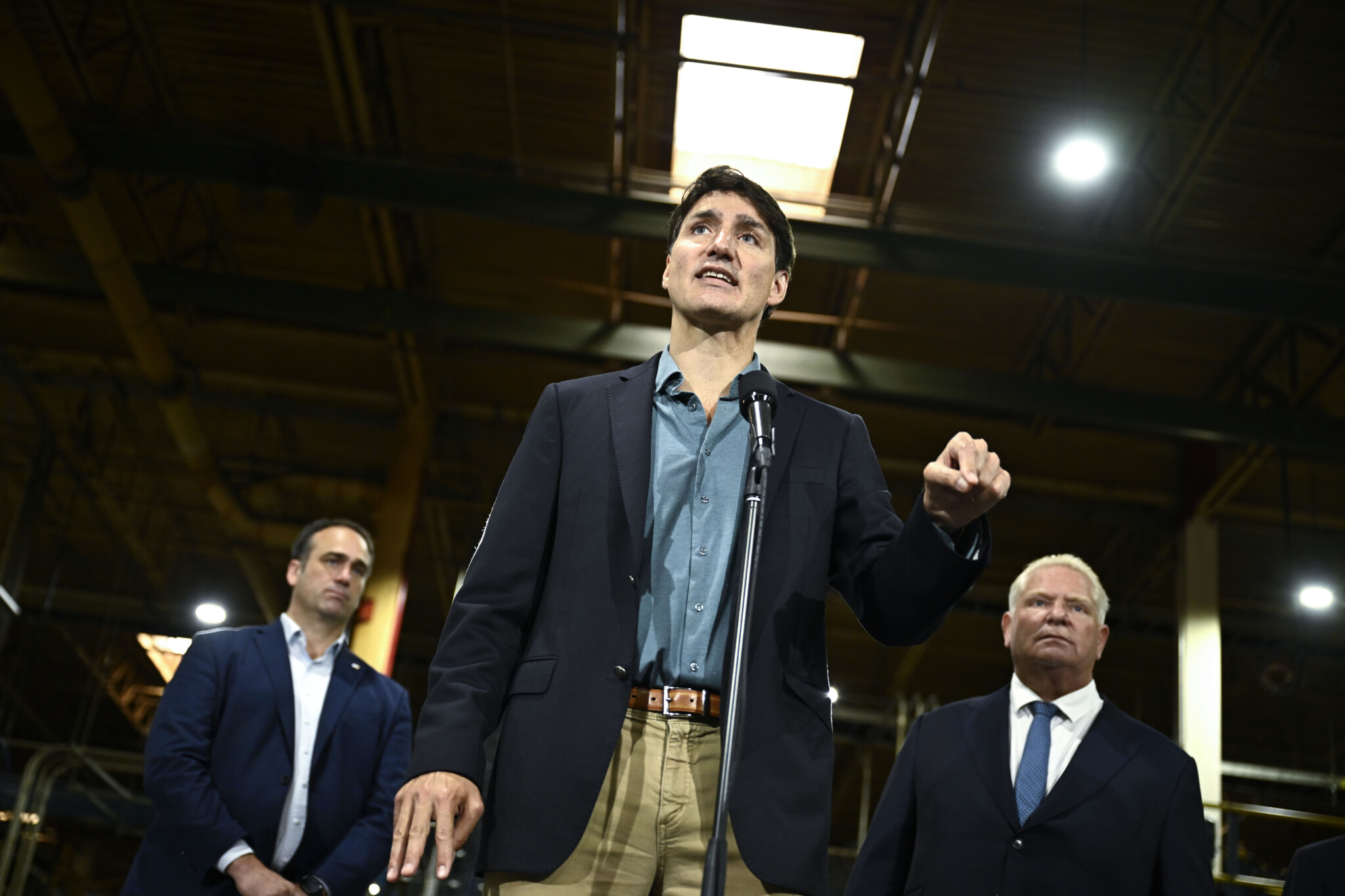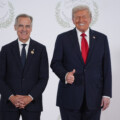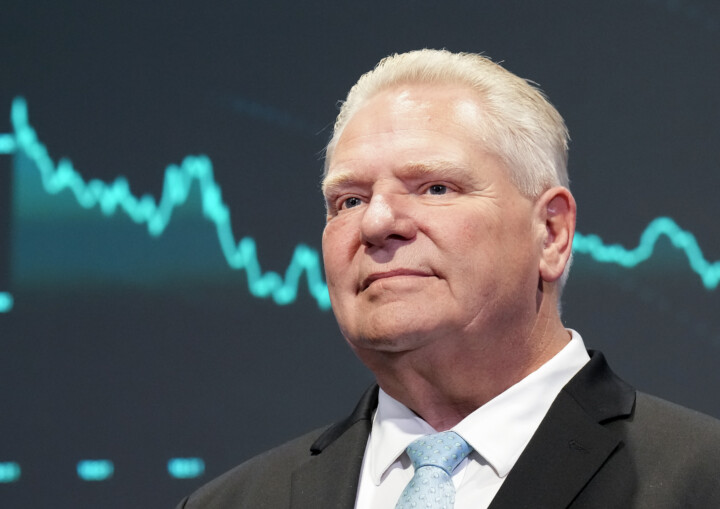Just months before pivotal elections, Canada’s political arena has turned into a spectacle, with a prime minister and premier handing out cheques as if they’re door prizes. These flashy giveaways might grab headlines, but they mask a disconcerting trend: leaders across the political spectrum are favouring populist quick fixes over the substantive, long-term solutions our country desperately needs.
If we don’t course-correct soon, we risk echoing the fate of countries like Argentina—nations abundant in potential yet hamstrung by decades of economic mismanagement, corruption, and short-sighted populist policies that have permanently stunted their development. This isn’t hyperbole; it’s a cautionary tale about where countries end up when they rely on superficial, short-term electoral gestures. The erosion of accountability in our political landscape signals not only a crisis in governance but also a decline in our collective self-respect.
Cheques without checks
Just months before elections, Ontario Progressive Conservative Premier Doug Ford and Liberal Prime Minister Justin Trudeau are distributing cheques—$200 and $250 respectively—with the assumption being that voters can be swayed with pocket change. But these so-called “gifts” come with a hidden price tag that we’ll all be paying later. That $200 cheque from Ford? It’s estimated to cost each taxpayer around $290 after accounting for the interest on the debt incurred over the next 10 years. Trudeau’s $250 handout? Expect it to ultimately cost about $350 per recipient. It’s the political equivalent of tossing breadcrumbs now and billing us for the whole loaf later, hoping we won’t notice our empty stomachs—or the hefty bill awaiting us down the road.
Ford’s $200 rebate, announced three weeks ago, is a classic sleight of hand. Instead of tackling the soaring cost of living or meaningfully addressing the housing crisis plaguing Canada’s biggest city and province, he offers a one-time payout—it’s like trying to heal a provincial stab wound by kissing our boo-boo better. It’s an unserious fix banking on the allure of immediate (if fleeting) benefits, while his government runs from serious reforms such as those proposed by its own expert housing task force nearly three years ago.
Not to be outdone, Trudeau desperately jumped on the faltering bandwagon last week by announcing $250 cheques and a two-month GST holiday. His finance minister says it’s to address a “vibecession.” With his government’s popularity plummeting—to the point where some question whether there will be a Liberal Party left to rebuild after the next election—you’d expect a pivot toward meaningful, legacy-defining policies. Instead, he’s doubling down on short-term gimmicks, displaying a typical hubris that Canadians have come to loathe as they prepare to slam the door on his way out.
Take the GST holiday from December 14 to February 15. Families might save between $100 and $230 on $2,000 worth of goods. But why now? There’s no pressing macroeconomic reason for this sudden generosity. Small businesses are saddled with the headache of updating their payment systems for a fleeting tax break and dealing with a surge of returns and repurchases. Meanwhile, the Canada Revenue Agency braces for implementation woes next tax season. If relief is truly needed for “necessities,” wouldn’t a permanent change make more sense? As Christmas bells begin to jingle, the timing suggests this isn’t about economic urgency—it’s cynical electoral politics at its finest. As Trudeau recently admitted, “We’re focused on Canadians, let the bankers worry about the economy.”

Prime Minister Justin Trudeau arrives to make an announcement regarding a two month suspension of GST on selected goods, at Vince’s Market, a grocery store in Sharon, Ontario, on Thursday November 21, 2024. Chris Young/The Canadian Press.
Left To Right: No accountability for anyone
This bipartisan race to the bottom highlights a systemic problem with Canadian governance: opting for flashy handouts over substantive solutions. But what does this say about us as voters? Have we become so cynical and easily swayed that we accept quick fixes even if they cost us more in the long term? This cultural complacency threatens to erode our living standards, pushing us toward mediocrity as peer countries pass us by. If we continue to settle for superficial gestures instead of demanding meaningful solutions supported by stronger institutions, we’re not just being shortchanged by our leaders—we’re complicit in undermining our own future.
Take for example, last month’s crowning absurdity: Ontario’s provincial government proposed a $100 billion—or more—tunnel under Toronto’s already 18-lane highway 401, a price tag that may come in larger than the entire economy of Saskatchewan. For that astronomical sum, our wealthier peers in Europe could quadruple Toronto’s subway network, removing hundreds of thousands of cars from the roads during peak hours and actually alleviating Toronto’s costly congestion. That such an outlandish solution is seriously considered for a very real problem demonstrates how little regard elite politicians and their consultants have for the intelligence of the average voter.
The Trudeau government’s takeover of the Trans Mountain Pipeline Expansion, justified to “Fund Canada’s future clean economy” saw its costs more than quintuple from private sector estimates to over $34 billion, thanks to regulatory delays, unaccountable payouts, and typical government inefficiencies. The result? A stark warning to investors that no new pipelines will ever be built in Canada by the private sector.
And then there is the once-touted Superclusters Initiative—nearly $1 billion “invested” to spur innovation—produced little of substance beyond ribbon-cutting ceremonies and has since faded from memory, its promises unfulfilled. Despite this record of failure, governments persist in deliberately avoiding the root causes of Canada’s economic stagnation, banking on voters’ short memories and a lack of follow-through to shield them from accountability.
What’s most disheartening is that cynical insiders are too often correct. Many Canadians are mollified by short-term perks and fantastical pledges, not realizing that the cost of a ribbon cutting here, or a tax break there, will be much greater later when added to our national debt. The federal debt has doubled over the past nine years to $1.4 trillion, with debt servicing costs projected to hit $54.1 billion in 2024-25.
A national decline in self-respect
The deluge of endless funding announcements— billions of dollars for thousands of rarely-audited initiatives, the ballooning costs of public sector consultants now eclipsing the entire Canadian military budget, or infrastructure projects with mind-boggling price tags—has rendered numbers meaningless to many voters. While their leaders light their tax dollars on fire in small-potatoes feel-good ribbon-cutting announcements, Canadians have become numb to the zeros being tossed around, losing sight of what they truly represent: our wealth and our futures, squandered.
We are allowing cynicism to take root, poisoning our political culture and lowering our standards. The absence of cultural and democratic self-respect has led many of us to believe we no longer need to hold our favoured politicians accountable. Partisan pride trumps country, and patriotism, like honour and decency, becomes another old-fashioned value.
If we continue down this path, we risk transforming Canada into another economy rich in potential but crippled by short-sighted governance.
It’s time to call out these policies for what they are: distractions that undermine our future. Canadians deserve better. We need to reward leaders willing to make tough, long-term decisions rather than opting for the easy, populist nonsense. Real solutions require time, effort, and often difficult choices. They may not provide the immediate satisfaction of a government cheque or a tax rebate, but they begin to build the foundation for a stronger country.











